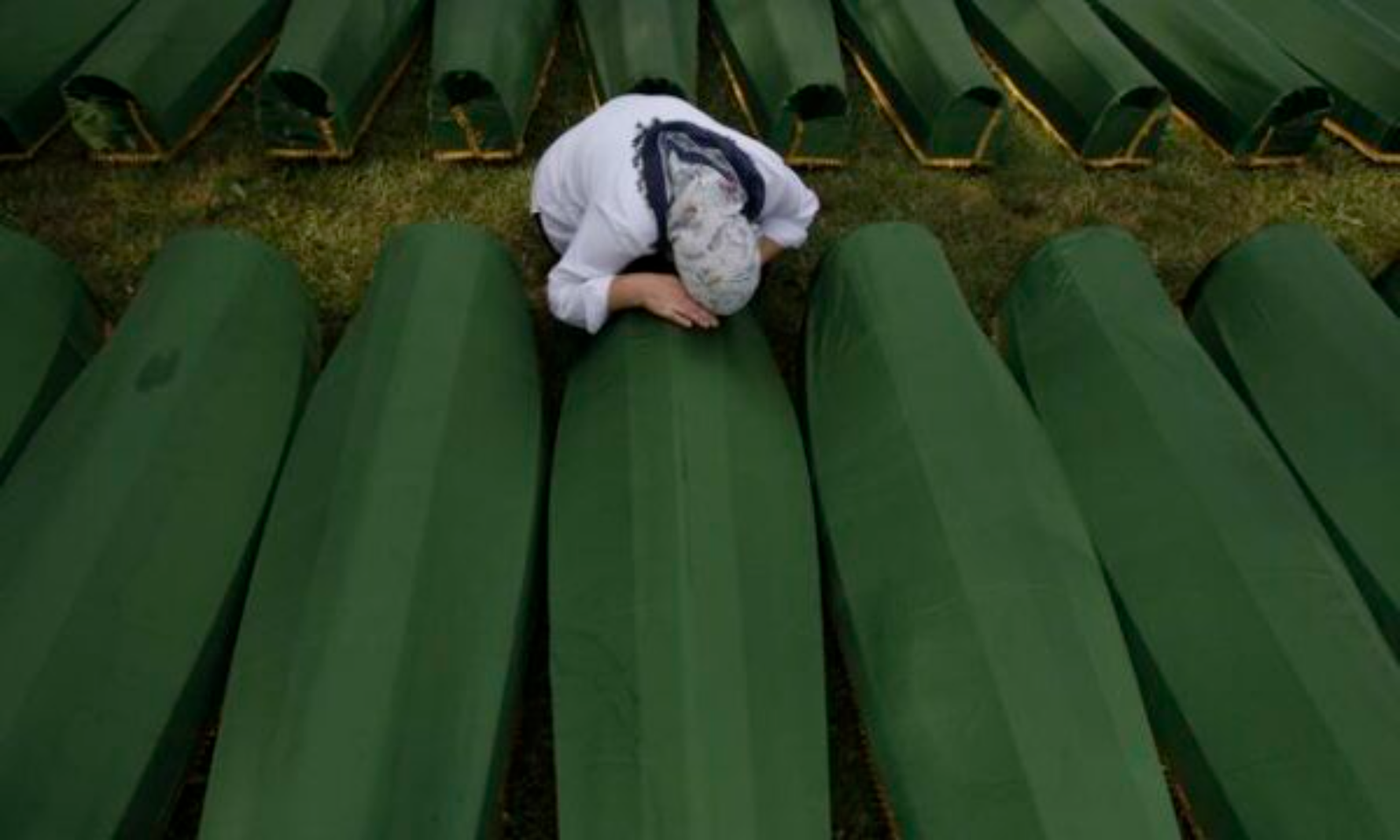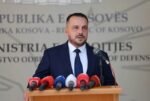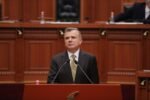In the first half of this year, 305 cases of genocide denial were registered in the Bosnian and Serbian media, which is three times more than in 2023, when a slight decrease was recorded.
Since July 2021, when the former High Representative in BiH imposed amendments to the criminal law, according to which denial of genocide, crimes and glorification of criminals are punishable, three indictments have been filed, two of which are evidence of the BiH Prosecutor’s office’s previous practice of allocating indictments against a person in some of them, and the third was rejected. Subsequently, the Court of Bosnia and Herzegovina combined two indictments against Vojin Pavlovic for inciting national, racial and religious hatred, discord and intolerance in one case, which is currently being held in Sarajevo.
By far the highest number of genocide denial cases was registered in the Srna news agency (191 cases), followed by Serbian Informer (48), RTRS (28) and Serbian Politika (21). As in previous years, among the individuals the biggest deniers of the genocide in Srebrenica were the president of Republika Srpska, Milorad Dodik (42 registered denials)2 and the president of the Organization of families of captured and killed fighters and missing Srebrenica civilians and a municipal employee in this town, Branimir Kojic (27 denials).
In addition, the genocide was denied and revitalized by Serbian Patriarch Porfirije, Prince Aleksandar Karadjordjevic, as well as Hebrew University professor in Jerusalem Yehuda Bauer, Israeli Holocaust research expert Gideon Greif, and the director of the “Simon Wiesenthal” Center, Efraim Zuroff.
In addition to the president of Republika Srpska, the list of deniers includes a large number of representatives of the entity’s institutions – Radovan Vishkovic, prime minister of the RS government, Stasa Kosharac, Deputy Chairman of the BiH Council of Ministers and Minister of state. of Foreign Trade and Economic Relations, Nenad Stevandiflix, member of SNSD and president of the National Assembly of Republika Srpska. The list includes Serbian President Aleksandar Vucic, former prime minister Ana Brnabic, Serbian Deputy Prime Minister Ivica Dacic and Serbian parliament member Miodrag Linta.
The genocide in Srebrenica is most actively denied through denial (234 cases), and relativization through justification or comparison with other crimes (44 examples).
Most often, denial or relativization occurs during some important events, anniversaries, as indicated by the data collected for this research. In the past 12 months, the denial of genocide in the media has been particularly highlighted during the commemoration of the 28th anniversary of the genocide in July 2023 (38 cases), since November last year during the pre-election campaign for parliamentary elections in Serbia. (30 cases), and mostly before and during the vote of the United Nations resolution on the Srebrenica genocide (188 cases), in April and may. The resolution was voted on by 84 members, therefore July 11 will be marked as the International Day of reflection and remembrance of the genocide in Srebrenica in 1995.
Representatives of institutions in Republika Srpska and Serbia launched a public campaign for the relativization of genocide before the vote on the resolution, stressing that the document serves “to present Serbs as a genocidal nation”, although there is no word on it. They called it” anti-civilizational“,” discriminatory “and”the beginning of an initiative to abolish Republika Srpska”.
The Media stressed that the resolution was an attempt by ” Western powers to demonize Republika Srpska and the Serbian people”, that it was “a threat to the Serbian people” and “to show them as victims and Serbs as bullies”. After the vote in the UN, Milorad Dodik published an author’s text in which he cites a series of data that contradict the facts established by the court.
Deniers often use expressions that reinforce discriminatory speech and support the spread of hatred, such as “NATO Muslims”, then that “Muslims started all conflicts” or that Srebrenica was an agreement so that “Muslims would receive the status of victims”. In the media you will often read that genocide is “presumed”, “kind”or “so-called”. On the other hand, any denial of genocide and the spread of lies and misinformation is opening wounds for survivors and families of victims, which even 30 years after the genocide cannot be healed due to political rhetoric.
When denying genocide, politicians and representatives of the institution often refer to the report of The Independent International Commission on investigation into the suffering of all peoples in the Srebrenica region from 1992 to 1995 as a relevant source to justify their denial. This commission is also funded by the government, and the main statements from this report have been rejected by the review of the judgments of The Hague tribunal because they are contrary to the facts established by the court.
Srna, a news agency funded by The Republika Srpska budget, is the main media platform for genocide denial. In 2024 alone, almost three times as many cases of genocide denial were recorded than in the previous two years combined (166 versus 62). Srna follows an active editorial policy according to which it characterizes any mention of genocide as “presumed”, even when they convey news of arrests, indictments for genocide or decisions – “arrest seven persons suspected of alleged genocide”, “on the occasion of indictment against seven members of the army of Republika Srpska for alleged genocide”.
Serbian newspapers Informer, Kurir and Alo used the Srebrenica genocide to target the opposition during the election campaign for parliamentary elections held in Serbia in December 2023. They called the opposition lists ” Coalition for genocide in Srebrenica”, “Tepicka, whose goal is to mark the Serbs as a genocidal nation”, “they use every guest appearance in the media supporting their policy to call the Serbs a genocidal nation”.
Tabloid media relativized the Srebrenica genocide, reporting” that it happened but against Serbs ” and attributed it to the opposition’s lack of concern for Serb victims.
In addition, tabloids marked the genocide as “the only thing the opposition agrees on” and often linked Srebrenica to Kosovo as an example of “anti-Serb politics.”







